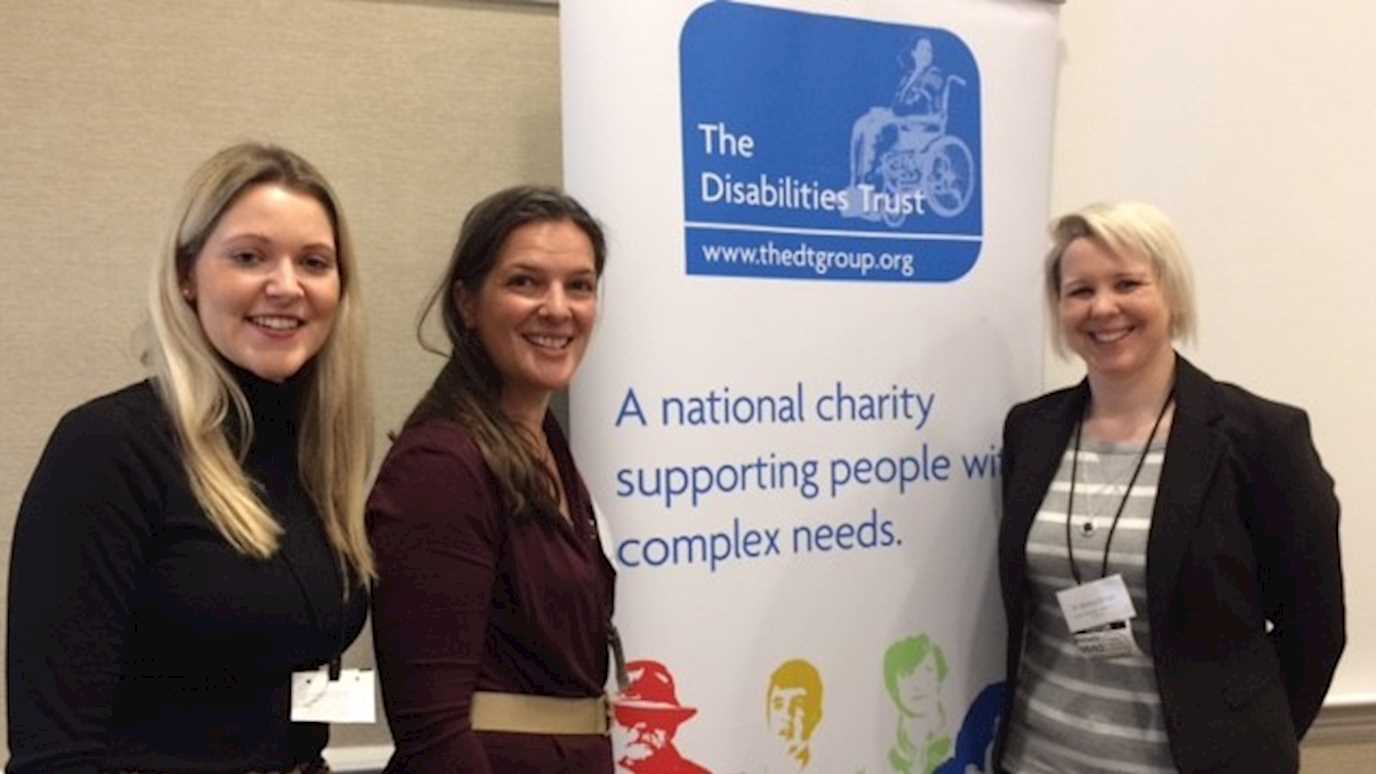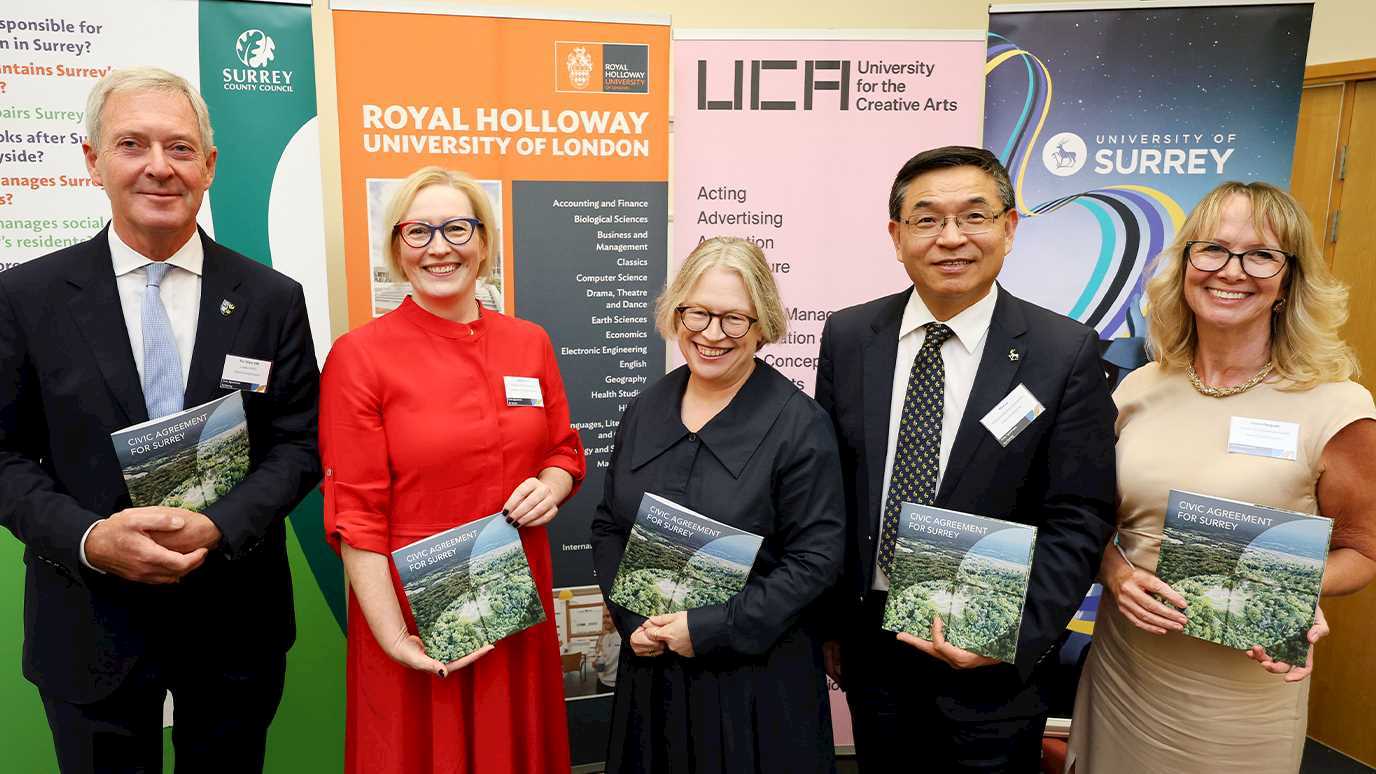On 6 February, The Disabilities Trust, in collaboration with Royal Holloway, University of London, will launch the results of the first study of its kind into brain injury in female offenders and how a support pathway can be put in place to manage the health, cognitive and behavioural issues which may impact on likelihood of reoffending.

Ana Jablonska, Emily Glorney and Serena Wright
This was funded by the Barrow Cadbury Trust and The Pilgrim Trust.
A follow-on study by The Disabilities Trust, examined the prevalence of brain injury within HMP/Young offenders Institute (YOI) Drake Hall and found that of the 173 women they screened using the Brain Injury Screening Index, 64% reported a history indicative of a brain injury and of those, 96% reported a history indicative of a traumatic brain injury.
It is widely acknowledged that traumatic brain injury (TBI) is over-represented in prison populations, with the likelihood of increased risk of violence, earlier age of first incarceration, a greater number of convictions, re-conviction, mental health problems and a greater number of attempts at suicide.
The needs of somebody in prison with TBI are likely to be complex, and the lack of understanding and identification of a brain injury results in a higher risk of custody and reoffending.
In the first study of its kind, carried out from 2016 to 2018, The Disabilities Trust introduced a Brain Injury Linkworker Service in HMP/YOI Drake Hall to provide specialist support to women with a history of acquired and traumatic brain injury.
Linkworkers aimed to develop a sustainable pathway of support for rehabilitation and help prisoners to manage the transition between custody and the community.
From the women supported through the service, there were 196 reports of severe blows to the head and distressingly, 62% reported they had sustained their brain injury through domestic violence.
Nearly half (47%) of the women had been in an adult prison five or more times and 33% sustained their first injury prior to their first offence.
The trauma in the lives of the women with TBI is evident in the accounts provided by interview participants. Some of the accounts and case studies presented in the independent evaluation written by Royal Holloway, University London are distressing to read.
It was established that a female Linkworker was sensitive to the gender-specific needs of those being supported. The women who were seen by the Linkworker experienced improved mood and self-esteem, and enhanced confidence and positivity; key factors that have been previously identified as being essential for a woman to engage in rehabilitative programmes.
The Linkworker service also offered practical guidance for staff working with women with a brain injury, and alleviated pressure from other service provision (e.g. mental health) with the conclusion that a Brain Injury Linkworker service provides a strong framework which will benefit offenders and prisons to identify and manage brain injury.
As a result of these findings The Disabilities Trust calls for:
• The inclusion of brain injury screening as a routine part of the induction assessment on entry to prison or probation services
• All prison and probation staff to receive basic brain injury awareness training
• The provision of brain injury support; similar to the Brain Injury Linkworker (BIL), in prisons
and probation settings
• Assurance that brain injury support would be aligned with gender-informed practice
• Further research to be conducted to examine the potential effect of brain injury on re-offending behaviour, how effective neurorehabilitation can contribute towards the reduction of recidivism and the role of early intervention approaches.
Case study of Linkworker help:
Kylie*
While completing a brain injury assessment with Kylie, she reported she had been in a serious road traffic collision and was unsure of the details of what happened to her and what treatment she’d had.
With Kylie’s consent, the Linkworker requested her medical records and reviewed the information. During this review, the Linkworker wrote a summary of her medical records with a list of recommendations for staff in light of Kylie’s disability. In a one-to-one session, the Linkworker went through the information with Kylie to increase her insight into her injury and associated symptoms.
The Linkworker emailed a copy of the medical review and recommendations to staff that work closely with the female offender to make them aware of her disability and how they can adjust their approach to cater for her disability. Prior to this, staff were unaware of Kylie’s brain injury.
Due to information in the medical review she was moved to St David’s House and into a single cell where she is getting on much better. The quieter environment allows her to concentrate more, she is now able to complete her own canteen sheet which is something she has not been able to do previously. She is feeling much more settled and happy which has increased her ability to engage with the prison regime.
*name changed
Irene Sobowale, Chief Executive, The Disabilities Trust
“The Disabilities Trust is delighted to launch this research, which builds on over five years of research into male offenders and brain injury. For the first time in the UK, we have considered the specific needs and experiences of female offenders, who are some of the most vulnerable in the criminal justice system.
The personalised service which we have developed, supports women dealing with the impact of their brain injuries, and independent evaluation from the Royal Holloway University London agrees that our Linkworker service within HMP & YOI Drake Hall recognised the gender specific needs of women.
There is much more work to be done to ensure that women with a brain injury are provided with effective support to ensure that they can engage in rehabilitation programmes and reduce the likelihood of reoffending. The Disabilities Trust looks forward to working with partners and Government to achieve this.”
Dr Emily Glorney, Senior Lecturer at the School of Law, Royal Holloway, University of London, who helped conduct the study alongside Dr Ana Jablonska and Dr Serena Wright
“Women with brain injuries in prison have a high level of complex needs relating to mental health, violence victimization, self-esteem and confidence, as well as offending behaviour. We know from research that there are links between traumatic brain injury, poor mental health, suicidality, and increased risk of violence.
“Therefore, if an aim of sending women to prison is to reduce risk of future offending, it is difficult to think how this aim can be addressed unless we also pay attention to the circumstances that brought these women to prison and their experiences of imprisonment.
“In our evaluation of the Brain Injury Linkworker service at a women's prison, we found that the impact of brain injury, psychological well-being, and trauma, are likely to be key considerations in supporting risk reduction, within a gender-responsive approach.
“A Brain Injury Linkworker service provides a strong framework to support such an aim.”
Joyce Moseley OBE, Chair, T2A
“Earlier research - ‘Repairing Shattered Lives’ by Huw Williams and the University of Exeter - for the Transition to Adulthood (T2A) Alliance highlighted the high level of brain injuries for people in custody and the link between brain injury and offending. The evaluation report by Royal Holloway shows what can be done to support women in the justice system by providing effective services and is a welcome addition to the growing body of evidence on the impact and prevalence of brain injury.”
Georgina Nayler, Director, The Pilgrim Trust
“The Pilgrim Trust was pleased to part fund this project and we have been struck by the positive impact the Brain Injury Linkworker has had on the women supported within the prison. Such screening and support should be available to all women in the criminal justice system. This report demonstrates that such understanding and support would improve the women’s mental and physical health and assist them to lead fulfilling lives outside prison.”
























